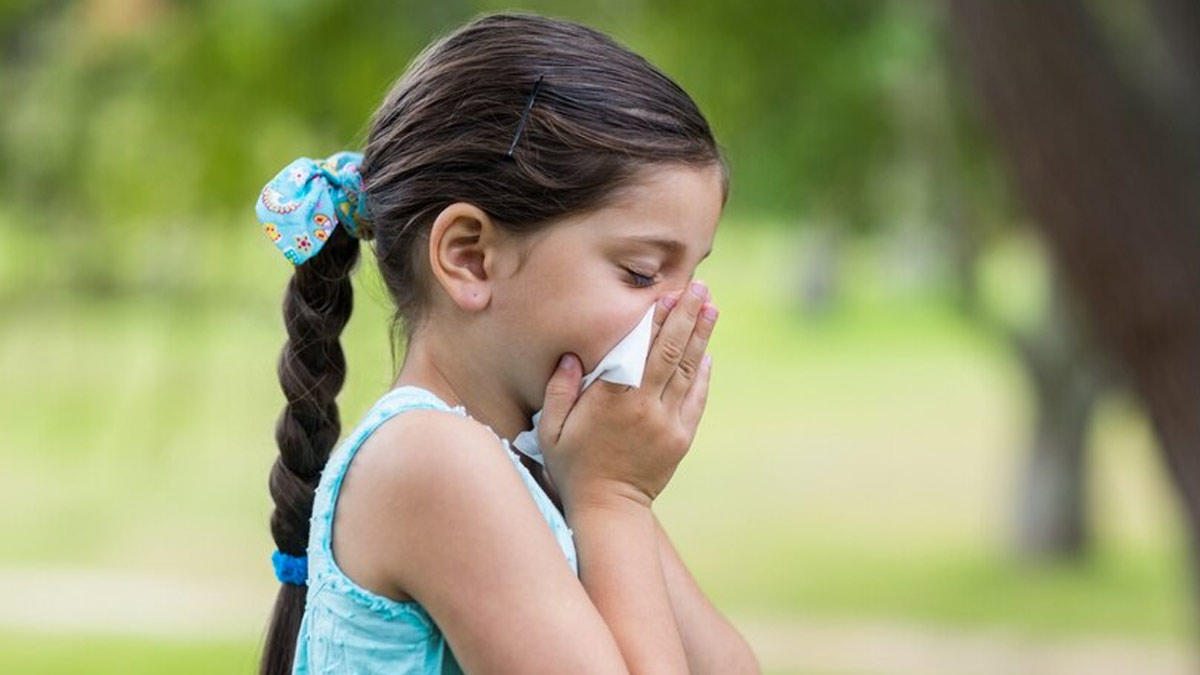
When the monsoon season arrives, with its refreshing showers and cooler temperatures, it brings a change in the air that can affect the health of children. One common concern parents and caregivers should be aware of is respiratory problems that kids may experience during the monsoon. These respiratory issues can make breathing difficult for children, affecting their overall health and well-being. To learn more about it, we spoke to Dr Srinivas Midivelly, Consultant Paediatrician, Yashoda Hospitals Hyderabad.
"Respiratory illness is at its peak during monsoon. Sneezing, running nose, coughing, throat irritation, and sore throat with difficulty in swallowing are very common symptoms during this time," said Dr Midivelly.
A community-based longitudinal study in rural Bangladesh published in the Oxford University Press stated that during the monsoon and pre-winter periods, there was a higher occurrence of Upper Respiratory Tract Infections (URI), while at the end of the monsoon and during the pre-winter periods, the incidence of Acute Lower Respiratory Tract Infections (ALRI) increased.
Also Read: Upper Respiratory Infection: Causes, Symptoms And Prevention Strategies
Respiratory Problems Kids Suffer During Monsoon
According to the doctor, the kids may suffer from the following respiratory problems during monsoon.
Acute or Chronic Bronchitis

"For acute bronchitis, the coughing may begin just like for a common cold, but it may be more frequent and longer," said Dr Midivelly. He said that the common cause of the sickness is either a virus or bacteria, but during the rainy season the type of prevalent virus – such as Respiratory Syncytial Virus (RSV) and Rhinovirus – usually causes bronchitis in children.
The doctor added, "This may be so severe that it leads to inflammation of the lungs which causes breathlessness, fast breathing, listlessness, loss of appetite, and a fever." He suggested that if you notice any of these signs, you should bring your child to a doctor; especially if there is a chronic dry cough as it can also lead to asthma.
Inflammation of the Nasal Cavity and Sinusitis
"These conditions can come from infections or allergies and can occur suddenly or progressively, which can be due to a virus or bacteria," said Dr Midivelly. He added that if it is by a fungus, you will find that the child has thick mucus which drains into the throat and causes coughing.
"The child may have a fever, pain around the face, and bad breath for longer than 1-2 weeks or intermittently," suggested Dr Midivelly.
Rhinitis from Allergy or Allergic to Weather

Dr Midivelly said that more and more kids in cities are getting allergies. These allergies can cause things like runny noses, sneezing, itchy eyes, nosebleeds, and ear infections. It can be hard for kids to do normal things like learn or sleep when they have these problems. If your child has these symptoms, you should take them to a doctor.
"To help your child, keep them away from things that make the air dirty, like car exhaust, dust, and smoke from things like cigarettes or incense. If they have to be around that kind of air, they should wear a mask and clean their nose often," suggested Dr Midivelly.
Also Read: Do You Sneeze A Lot? You May Have Allergic Rhinitis, ENT Doctor Explains
Bronchial Hyperresponsiveness or Asthma
Dr Midivelly said, "If you notice that your child has trouble breathing, coughs a lot, makes a whistling sound when breathing (especially when exercising or in the early evening), or coughs a lot when they have a cold but feels better after using medicine to help them breathe better, or if your child has had allergies before (like skin rashes, runny nose, or food allergies) or is around people who smoke cigarettes, it's a good idea to talk to a doctor who specialises in allergies and breathing problems. They can check your child and give them the right care."
Upper Airway Obstruction
"The important signs of upper airway obstruction occur during the child's, sleep, such as snoring, forceful breathing, restlessness, lying on stomach or keeping head high," said Dr Midivelly.

He added, "For a severe case, the child may experience irregular breathing, or cannot breathe, and has to sit up to sleep. In extreme cases, the child cannot rest properly and feel sleep-deprived, irritable, drowsy during the day, and experience reduced learning and concentration ability," stated the doctor.
"Generally, upper airway obstruction is caused by enlarged adenoid and tonsil glands, obesity, facial disfigurement, persistent nasal cavity, or sinus infection," said Dr Midivelly. He added that if any of these conditions become chronic, they can have an impact on the child’s growth, development, learning ability, and emotions.
Viral Pneumonia
"Pneumonia can present with various signs and symptoms, which may consist of fever, cough, chills, rapid breathing, audible grunting or wheezing during breathing, difficulty breathing, vomiting, discomfort in the chest, pain in the abdomen, reduced activity levels, decreased appetite in older children, or difficulty with feeding in infants," said Dr Midivelly.
He added that the majority of pneumonia cases are caused by familiar viruses responsible for colds, flu, and other respiratory infections, including adenovirus, rhinovirus, influenza (flu), RSV, and parainfluenza virus.
[Disclaimer: This article is for informational purposes only. Consult your healthcare provider to get a thorough diagnosis and treatment as per your health needs.]
Image Credits: freepik







